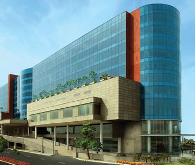 | « Back to article | Print this article |
 Hotels in the Capital are in for some tough times, with the Commonwealth Games not fetching many customers and the government releasing a large part of the inventory that it had earlier reserved for the event.
Hotels in the Capital are in for some tough times, with the Commonwealth Games not fetching many customers and the government releasing a large part of the inventory that it had earlier reserved for the event.
On an average, 125 hotels in the city had reserved around 60 per cent of rooms - that adds up to over 6,000 rooms -with the Games Travel Office.
Although the exact room count is not known, over 50 per cent of the rooms or around 3,000 rooms that had been reserved, have now been handed back to the hotels.
"The entire inventory booked by the Games Travel Office has been given back to us and we are still waiting for bookings. There has been a very marginal increase in the fare also," said Manju Sharma, director, Jaypee Hotels.
With rooms vacant, hotels are now pinning their hopes on the domestic traveller and doling out goodies to get a better share of occupants. Leela Kempinski, Gurgaon, for instance is providing free pick up from airport. There are other freebies as well: free spa treatments, adventure sports, ayurveda and free wi-fi, apart from a cutback in room rates.
The tourism ministry had estimated that over 100,000 foreign tourists would visit India in October for the Commonwealth Games. Following the tepid response from tourists, hotels owners' expectations of cashing in on the demand have not been met.
"October, when the peak season sets in, is not going to be good for hotels. The Games do not seem to be driving much traffic to Delhi. We are hoping that things would look up November onwards," said Sushil Gupta, chairman and managing director, Asian Hotels - West.
"Corporate travel is at the lowest. Leisure travellers won't have any friends or relatives here as the Games are driving Delhiites out of the city. Bookings are low," said Rajinder Kumar, director, Ambassador Hotels.
According to Crisil occupancy rates in premium hotels are likely to remain flat this year. "There has been a huge increase in the inventory which is going to continue for the next two years. It will take some time for the demand to catch up," said Sridhar Chandrasekhar, head of research, Crisil.